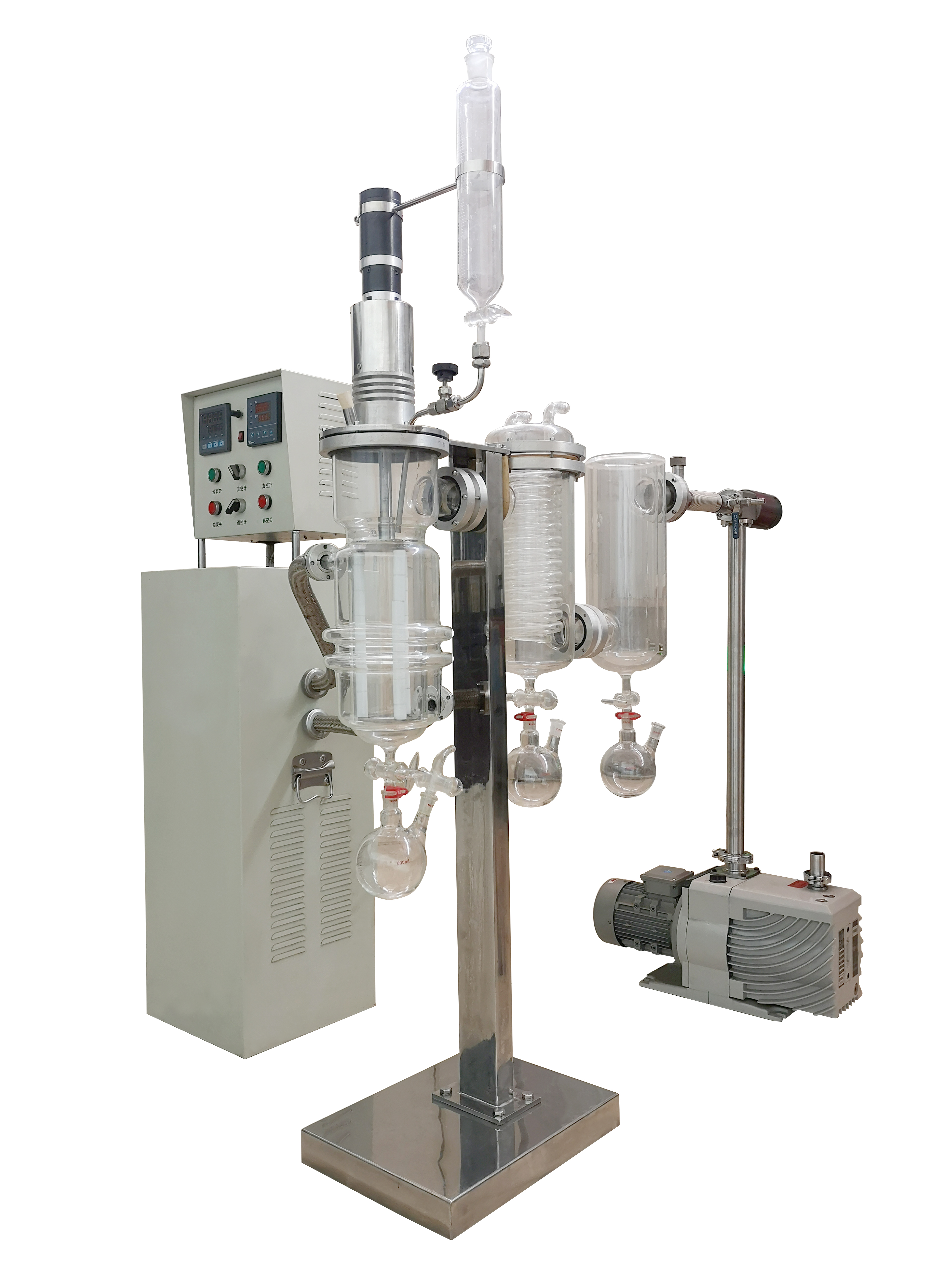
Equipment specifications
Thin film evaporator
|
Model |
TY-100 |
|
Specifications |
Laboratory type |
|
Processing capability |
3-5kg/h |
|
Evaporation area |
0.1m2 |
|
Condensation area |
—& mdash; |
|
Evaporative inner diameter |
100mm |
|
Temperature control |
0-300℃ |
|
Minimum vacuum |
0.1Pa |
|
Main materials |
High borosilicate glass |
Note 1: The processing capacity is the amount of ethyl linolenic acid processed. Different substances have different separation coefficients and processing efficiencies. This value is for reference only
Note 2: It is recommended to control the normal operating temperature between 0-200 ℃. If it exceeds 200 ℃, please be sure to replace the high-grade heat transfer oil for more convenient and safe operation